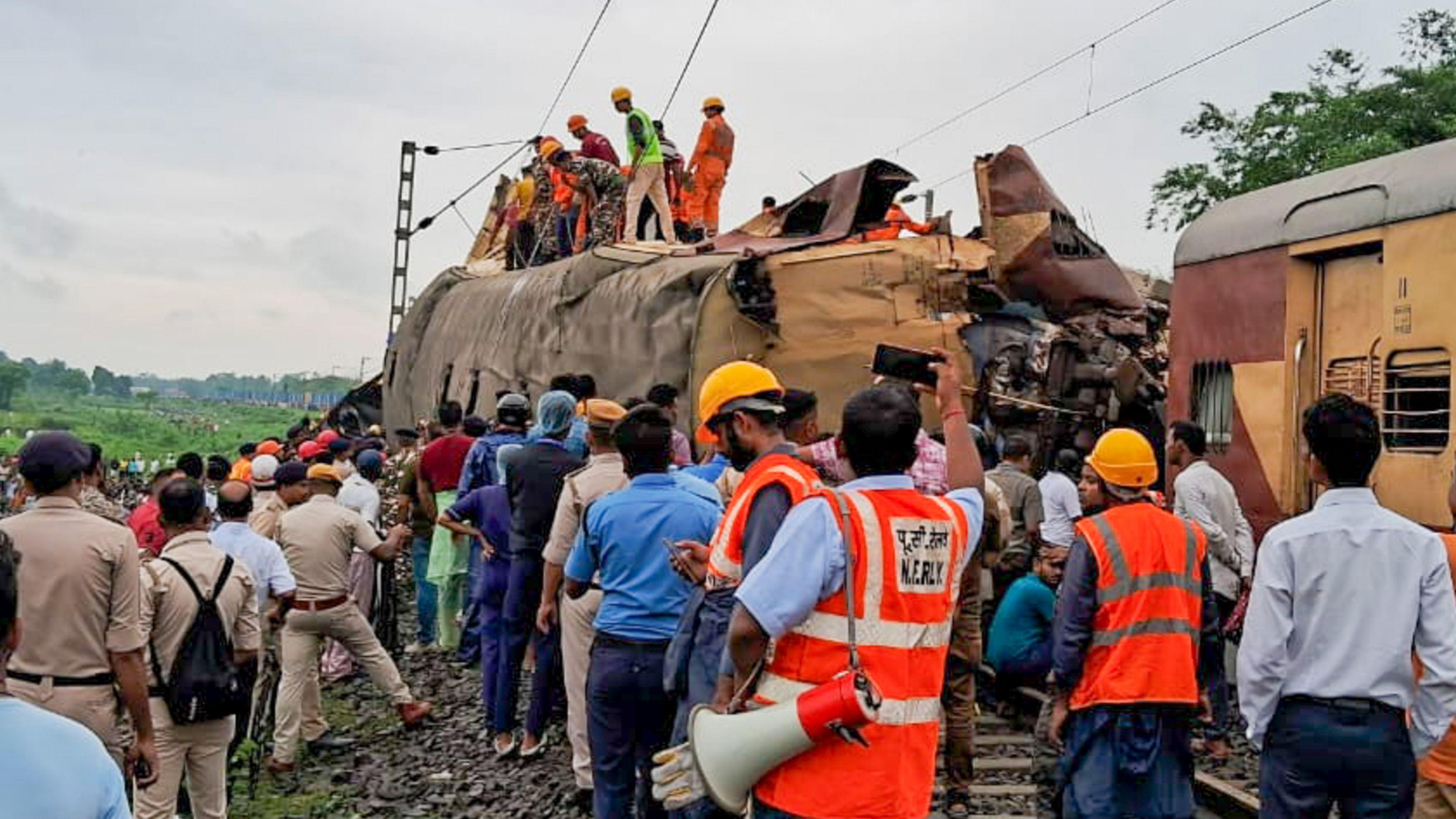
Rescue work underway after a collision between the Kanchanjunga Express and a goods train near Rangapani railway station, on Monday, June 17, 2024.
Credit: PTI Photo
New Delhi: A preliminary probe has found that the Kanchanjunga Express accident occurred due to human error.
"The collision took place because the goods train loco pilot disregarded the signal and hit the Kanchanjunga Express, which was on its way to Sealdah from Agartala," Railway Board Chairperson Jaya Varma Sinha told reporters.
"Driver and assistant loco pilot of the goods train and guard of Kanchenjunga Express train died in the accident," she said, adding that a detailed probe would reveal the cause of the tragedy.
According to preliminary information received from railway officials, the passenger train was stationary on the tracks when the goods train hit it from behind.
The automatic signalling system between Rangapani Railway Station and Chattar Hat Junction in West Bengal was defective from 5.50 in the morning, sources said.
Train No 13174 (Sealdah Kanchanjunga Express) left Rangapani at 8:27 am and stopped between Rangapani and Chattar Hat station due to automatic signalling failure from 5:50 am," sources added.
Whenever the automatic signalling system fails, the station master issues a written authority called TA 912, which authorises the driver to cross all red signals in the section because of the defect. As per the procedure, the station master of Rangapani had issued TA 912 to Train No 1374 (Sealdah Kanchanjunga Express)," said the official.
Sources said an investigation alone can establish whether the goods train was also given TA 912 to cross defective signals at speed or if it was the loco pilot who violated the defective signal norm.
If the goods train diver was given TA 912 written authority, the driver was supposed to stop the train for one minute at each defective signal and move on at 10 km/ph speed.
However, the loco pilot's body has questioned the Railways' statement that the goods train loco pilot violated the red signal.
"It is highly objectionable to announce that the loco pilot is responsible when he is dead and CRS inquiry pending," Sanjay Pandhi, working president of the Indian Railway Loco Runningman Organisation (IRLRO), said.
